CNN cameras go inside the secretive nation to places few outsiders have ever seen.
Ever wondered what life must be for citizens inside the Democratic People's Republic of Korea, aka North Korea?
As tensions near boiling point (North Korea claims they have test-fired a hydrogen bomb, and just a few days ago fired a ballistic missile over Japan), CNN cameras go inside the secretive nation to places few outsiders have ever seen.
CNN International Correspondent Will Ripley -- who has been to North Korea 15 times in the last three years -- and his team travelled from the heavily armed border region near South Korea -- deep into the impoverished countryside where blackouts and food shortages are commonplace -- to the coast where frenzied missile testing is underway.
They also go through the showpiece capital of Pyongyang, where a growing consumer class is emerging, and along the Chinese border where the team climbs North Korea's most sacred mountain.
The result of their travel is a one-hour documentary Secret State: Inside North Korea, which aired on September 16.
CNN granted Rediff.com permission to post some of the scenes from this unforgettable journey into the heart of the hermit nation.
Will Ripley/CNN
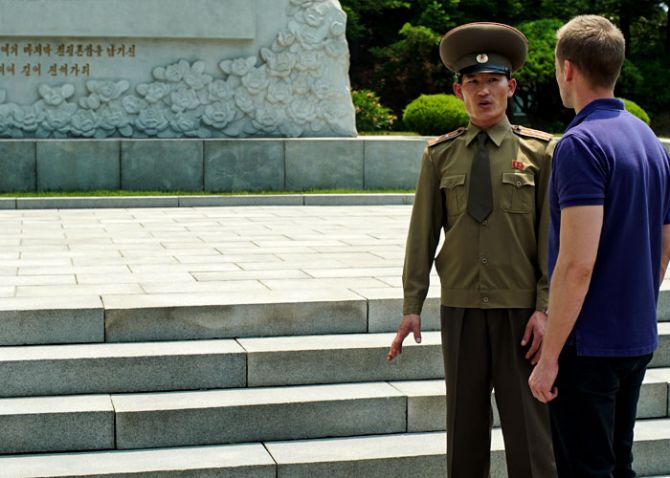
The CNN team spoke to people from all walks of life, learning more about what makes the country tick, the reason for its deep hatred of the United States, and just why people who live under an authoritarian regime claim to adore the Kim family.
The interviews, conducted under the watchful eye of government minders, gave an extraordinary insight into the lives and aspirations of those who live and work under Kim Jong-un's authoritarian regime.
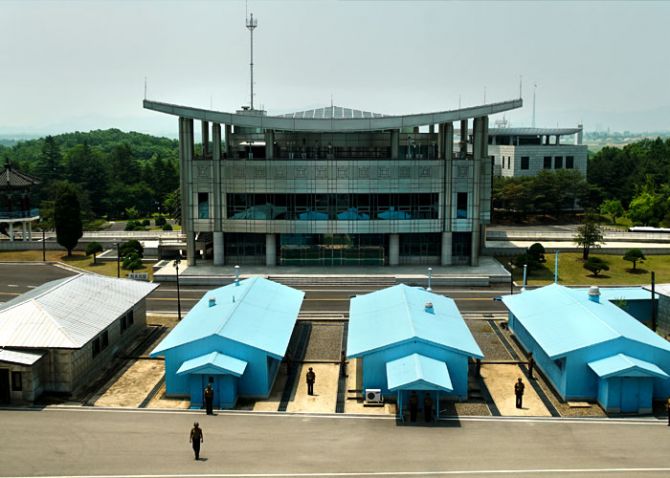
Welcome to the Korean Demilitarized Zone -- the infamous DMZ, a place unlike any other in the world.
Barbed wires, one million soldiers standing guard at outposts is all you can see over here.
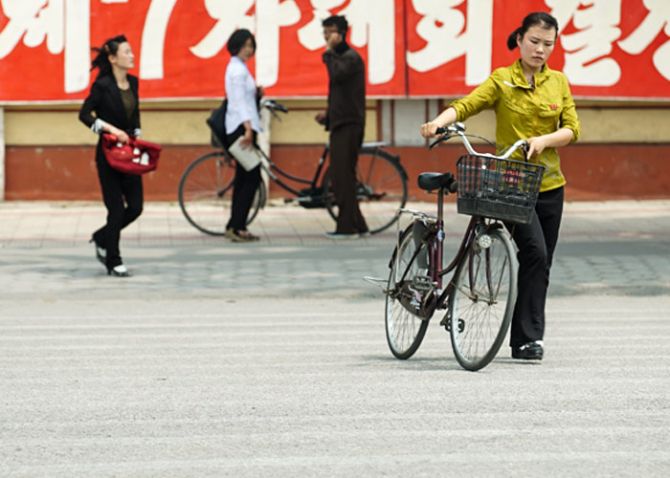
North Korea is a nation of around 25 million people.
About 3 million people are allowed to live in the relatively modern capital of Pyongyang, which boasts a growing skyline and public amenities that surpass the rest of the country.
Much of North Korea is rural and relatively undeveloped, dotted with towns and villages where basics like electricity, clean water, and nutritious food are not always available.
The average yearly income is estimated at about $1,000 to $2,000 or around $4 per day.
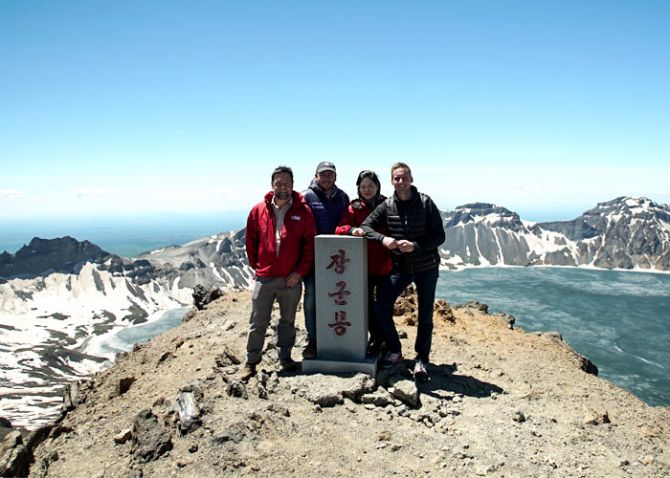
The CNN team at Mount Paektu, situated 400 miles north of Pyongyang on the Chinese border.
This is the highest point on the Korean peninsula. It is an active volcano and a sacred site, supposedly the birthplace of North Korea's second leader, General Kim Jong-il.
North Koreans believe on the day Jong-il was born, the strong winds stopped, the sun began shining through, everything was bright and a quiet, and calm took over.
The flowers bloomed and in the sky was a particularly bright star.
Most outside historians say Jong-il, father of current leader Kim Jong-un, was actually born in Russia.
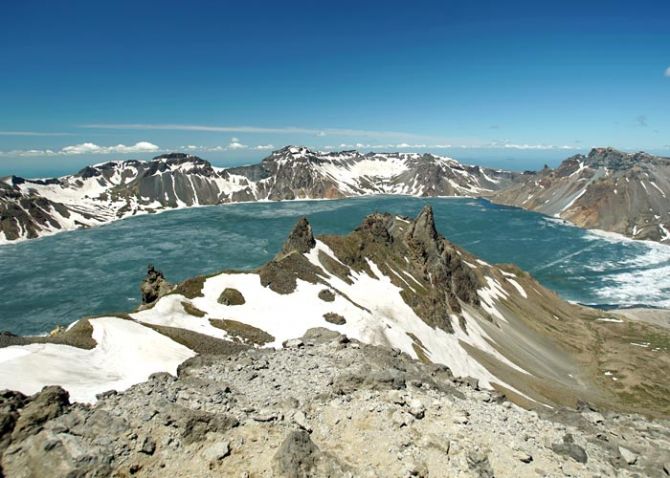
Reaching Mount Paektu is not an easy task. One has to take an Air Koryo flight to SamjiyonCounty and then drive for hours on dirt roads through the North Korean countryside.
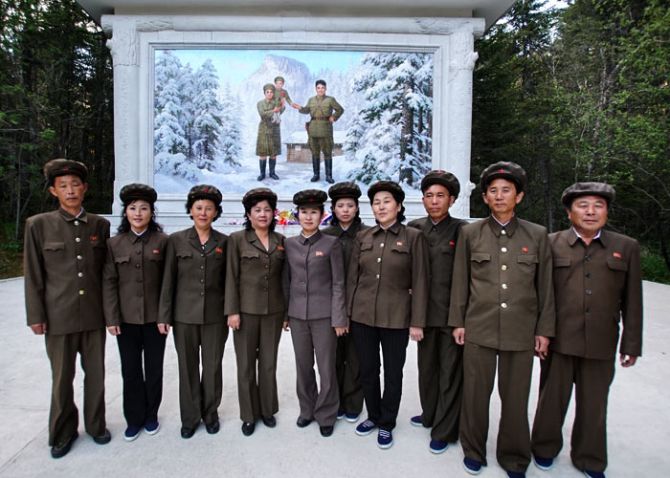
A work group pauses for a photograph at the supposed birthplace of the late North Korean leader Kim Jong-il They will soon ascend Mount Paektu, considered a pilgrimage for North Koreans.
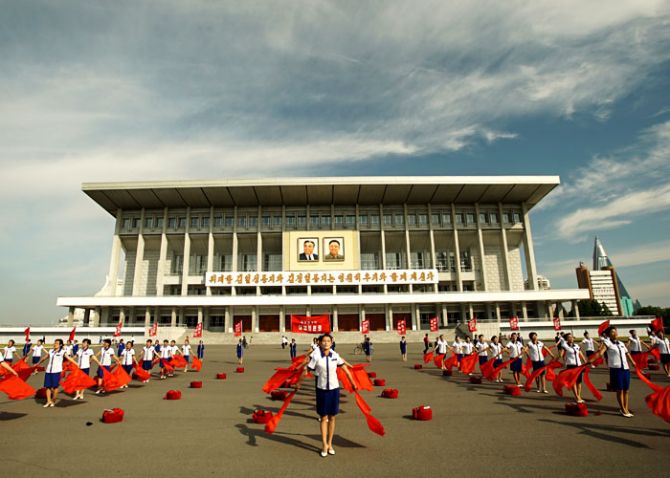
This is Pyongyang -- the country's showpiece, home to the most trusted and privileged of its citizens.
Each morning, women wave flags in the centre of the city to motivate the city's 3 million workers to work harder.
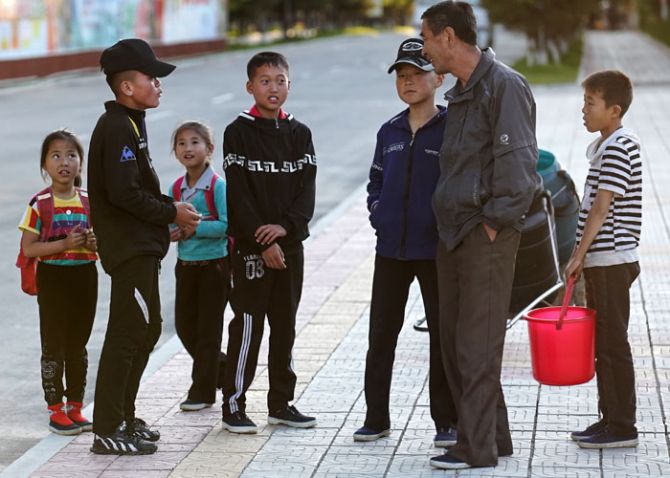
There are about 5 million children under 14 in North Korea.
Most of them, when asked, 'want to join the army one day, and fight the sworn American enemy.'











 © 2025
© 2025